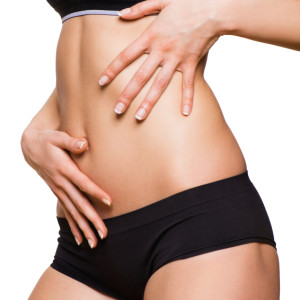Naturopathy for all stages of women’s reproductive health
Recently I was lucky enough to attend the International Herbal Medicine conference where lots of new and exciting research and clinical experience in the world of naturopathy and herbal medicine was divulged.
Here is a snapshot of some of the amazing information I learnt in the field of female reproductive health:
Endometriosis, an oestrogen dominant condition, occurs when the tissue that lines the uterus grows outside of it. Symptoms commonly experienced include pain, heavy bleeding, changed bowel function, bloating, tiredness, fatigue and reduced quality of life. Endometriosis is sometimes thought of as an autoimmune condition, because the body’s immune system is over active causing inflammation. Inflammation is the driving factor behind many of the symptoms experienced.
Naturopathic philosophy involves treating the underlying cause because once the cause is removed the body has the ability to heal itself. Herbal medicine is effective at targeting the underlying causes of endometriosis in the following ways:
Turmeric: Suppresses inflammatory mediators, detoxifies oestrogen metabolites from the liver
Calendula: Anti-inflammatory, enhances lymphatic drainage, improves immune response, heals wounds
Green tea: Decreases cell proliferation
Vitex: Addresses hormonal imbalance, enhances body’s natural production of progesterone
Echinacea: Anti-inflammatory, modulates the immune system
PCOS is the most common endocrine disorder for women of reproductive age, presenting in one in five women. Women with PCOS often experience anovulation, infertility, obesity, hyper-androgenism, and insulin resistance. Recent research has shown particular nutrients and herbs to be efficacious in addressing these factors. For example:
| HERBS | NUTRIENTS | |
| Reducing androgens | Licorice, paeonia | |
| Improving glucose management | Gymnema, fenugreek, goat’s rue | Inositol, magnesium, vitamin D |
| Improving insulin sensitivity | Berberis, cinnamon | Chromium |
| Reducing inflammation | Turmeric | Omega 3 fatty acids |
| Improving ovulation | Black cohosh, vitex, false unicorn root | |
| Improving pregnancy rates | N-acetyl-cysteine, inositol |
Many women report that menstruation is a migraine trigger. Studies show that migraine is most often experienced in the two days leading up to a period and the first three days of the period. The sudden pre-menstrual drop in oestrogen levels triggers menstrual migraine.
Food as medicine phyto-oestrogens
Oestrogen modulation, to combat the fall in oestrogen, through dietary modification has proved successfully in combatting menstrual migraines. The key is to adopt the dietary regime for only five days prior to the period and to continue until day three of the period.
Dietary modification involves utilising foods that contain phyto-oestrogens, which are compounds that occur naturally in plants and show some of the same activities as the female hormone oestrogen (though milder). This is a perfect example of utilising food as medicine! Foods rich in phyto-oestrogens include tempeh, linseeds, sesame seeds, legumes (e.g. chick peas, lentils, broad beans), and sprouts (e.g. alfalfa).
How to include these foods in your diet:
- ground linseeds – add to smoothies, on top of porridge
- tahini add to smoothies, spread on apple
- alfalfa – add to salad
- tempeh – with vegetable stir-fry
- hummus snack with carrots
- lentils and chickpeas add to curries
Herbal medicine
Herbal medicine is very effective for relief of menstrual migraines for the following reasons:
Feverfew: anti-migraine reduces the severity and frequency of migraine
Lavender: anti-spasmodic relaxes spasm
Hops: phyto-oestrogenic supports oestrogen levels
Black cohosh: selective oestrogen receptor modulator modulates oestrogen
Paeonia: blood tonic and muscle relaxant
A baby’s gut in utero is not sterile (i.e. devoid of microbes) as previously thought. This is because the placental microbiome is akin to the oral microbiome of the mother. The microbiome is the collection of trillions of microbes living in and on the human body. A healthy microbiome has shown to have many health benefits including reduction in atopic conditions (asthma, excreta), reduced incidence of obesity and diabetes, reduced cardiovascular disease risk, and improved neurological health and immune response.
The trans-location (i.e. movement) of microbes from the mother to fetus occurs via the blood. Therefore this highlights the importance of dental health for expecting mothers.
What can you do? Pre-conception planning should include a trip to the dentist, as well as the use of herbal anti-microbial agents in the incidence of periodontal disease. A mouthwash containing a combination of tea tree, calendula, echinacea, peppermint and sage has proven effective for treatment.
This highlights the importance of gut health for expectant mothers. A wholefoods diet rich in vegetables and fruits can improve gut health within days. The use of probiotics, in particular Lactobacillus rhamnosus GG, is also useful for healthy bub gut colonisation.
 65-75% of couples that undergo assisted reproductive technology (ART) consult with a complementary medicine practitioner (i.e. acupuncturist, naturopath, nutritionist) to optimise treatment outcomes. This is such a wonderful example of the beauty of utilising naturopathy complementary to traditional medicine to achieve the best possible outcome for the patient. A naturopath will prescribe a combination of dietary changes, nutritional interventions and herbal medicine to achieve the following outcomes:
- improved egg/sperm quality
- improved ovarian response to increase egg numbers
- enhanced liver detoxification to improve recovery and decrease the risk of hyper-stimulation
- improved general health such as support for weight loss and smoking/alcohol cessation. Most IVF clinics will not allow treatment for couples who are obese.
- Improved stress management which should boost a woman’s capacity to carry the pregnancy
Natural menopause occurs when the body’s natural secretion of progesterone, testosterone and oestrogen (in the form of oestradiol) is reduced due to the diminishment of the ovarian follicles. Common symptoms of menopause include hot flushes, irregular bleeding (peri-menopause), sleep disturbances, urinary incontinence, mood changes, cognitive changes, hair loss and atrophic vaginitis.
Black cohosh is the most widely used botanical for the relief of hot flushes, and the there is plenty of research to back up its effectiveness for relief of symptoms in menopause.
Herbal medicine has proved effective in menopause for the following reasons:
Wild yam relieves symptoms of hot flushes and headaches
Hops efficacious to manage symptoms related to post-menopausal oestrogen deficiency
Motherwort effective for relief of anxiety or other nervous disorders, for women who experience these symptoms
Panax ginseng improves quality of life by increasing resistance to stress
Kava anxiety is a common complaint in menopause and there is now tons of research in support of kava’s anxiolytic properties
Shatavari rejuvenates female reproductive organs as well as increasing sexual secretions.
Sage extremely useful for relief of night sweats and hot flushes. Sage may be consumed as a tea.
Recipe: Soak 5 fresh sage leaves over night in the juice of 1 lemon. Drain in the morning, add water and drink.










